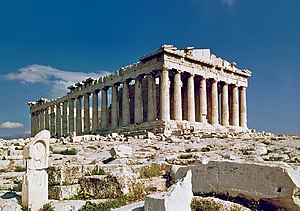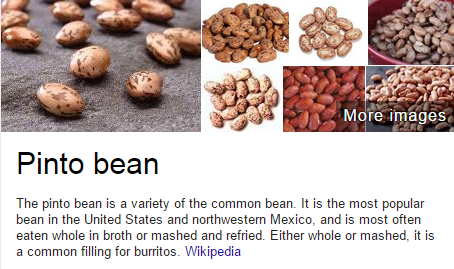Thursday, May 28, 2015
Wednesday, May 27, 2015
Tuesday, May 26, 2015
Friday, May 22, 2015
May 22nd blog
Today in class we reviewed our material to study for the test. We also got some info on the exams, including when the essays will be
I will be prepared for the test and exam pt. 1
I will be prepared for the test and exam pt. 1
Wednesday, May 20, 2015
Presentations: Day 2
Today 3 groups presented their projects
Team Pottery
Team Temple
Team Dairy
*Diary... stupid auto correct
Out of the three, team temple was the best. Funny, interesting, got a good message across, and very very very very informative
Day 3 coming tommorow....
Team Pottery
Team Temple
Team Dairy
*Diary... stupid auto correct
Out of the three, team temple was the best. Funny, interesting, got a good message across, and very very very very informative
Day 3 coming tommorow....
Tuesday, May 19, 2015
Presentations: Day 1
Today, the first three people presented their projects.
First was an array of food which was very good
Second was Evan the Patrician and the Plebians with their masterpiece "Rome"
Debuted in class, i think it was very well recepted
Third was a very informational presentation about the Colosseum and Circus Maximus
First was an array of food which was very good
Second was Evan the Patrician and the Plebians with their masterpiece "Rome"
Debuted in class, i think it was very well recepted
Third was a very informational presentation about the Colosseum and Circus Maximus
Friday, May 15, 2015
Blues day in the Schick class
Today we listened to some blues masters and guitar masters. My favorites were BB and Muddy waters
rip bb king

rip bb king

Thursday, May 14, 2015
May 14th blog
Poor ole plebs
People (plebs) wanted bread and circuses according to philosphers
Military generals worked like Gracchus - lead an army that was successful and give them some of the spoils
Julius Caesar died in 44 BCE

People (plebs) wanted bread and circuses according to philosphers
Military generals worked like Gracchus - lead an army that was successful and give them some of the spoils
Julius Caesar died in 44 BCE
- highly successful general
- conquered lots of large land (gaul)
- Made common folks happy
- Friends with pompey general and..
Crassus
you could say he

Just grabbed some land
Caesar also made a triumvirate
Wednesday, May 13, 2015
May 13th Blog
Today, i wasn't present for class. I had to leave right as class started, looking forward to hearing details about class from my classmates tommorow
Tuesday, May 12, 2015
Just, take some land!!!
Today, we finished watching the video of Rome on BBC. It was a very good movie, and there was a lot to learn from the discussions after, during, and before the video.
But most of all, just grab some land!
Someone should make a remix out of that
But most of all, just grab some land!
Someone should make a remix out of that
Thursday, May 7, 2015
Video day (yay!)
Today in western civ we watched part of a video about Rome. The other 2/3 of the class was talking, Mr. Schick being frustrated with that darn laptop, and jokes alongside off topic dicussions. When the video rolled around, it was very informational!
Wednesday, May 6, 2015
intense note taking day- government in Rome
Rule of kings was replaced with 2 consuls
- Consuls elected by aristocrats
- Term of office=1 year
- Patricians traced descent from an ancestor
- Duties; dealing out justive, making law, commanding army
- one consul can veto the other
- Plebs took up 98% of Roman population
- Plebs were in all positions except high up ones
- Plebs had 0 legal rights
- Common victims of discriminatory justice
- Rome had no real laws, they were essential understood things
- Patricians interpreted these understandings for their benefit
- The 12 tables were invented in order to inform plebeians of their rights and the laws in 450 BCE
- Tribunes were elected (plebs)
- SPQR- Designates any dfecree of decision made by the Roman Senate "the Roman Senate or People".
May 6th Blog: Government in Rome + Punic Wars
Bill of Rights is the American equivalent of the 12 tables
The House of Reps. is the American equivalent to the Assembly
5000 Soldiers were part of Rome's heavy infantry, these people were recruited Romans.
A group of 80 soldiers together is called a century
The punic wars (theres 3) from 364-146 BCE
The House of Reps. is the American equivalent to the Assembly
5000 Soldiers were part of Rome's heavy infantry, these people were recruited Romans.
A group of 80 soldiers together is called a century
The punic wars (theres 3) from 364-146 BCE
- Mainly naval wars
- All 3 won by Rome
- 2nd war; Rome goes under attack from the North, which was unexpected by Rome. If Carthage had been more prepared, they would have won Rome
- 3rd war: Rome orders Carthage to pay a royalty of people and money in order to not be attacked and destroyed,but Rome ends up destroying Carthage anyway
- The latifundia form
Wednesday, April 29, 2015
April 29th blog
Today in West. Civ we discussed our projects within our groups and finalized our ideas for our projects. I will be making a song and video with my group, although our rap group is yet to be named we promise an amazing name!
Tuesday, April 28, 2015
Baltimore Riot Day- April 28th
Today in Western Civ, we discussed the Baltimore Riots of 2015. We had a detailed discussioin of our opinions and different topics related to it
(including this mom. GO MOM!)

There was lots of destruction, injuries, but thank god no one was hurt
(including this mom. GO MOM!)

There was lots of destruction, injuries, but thank god no one was hurt
Thursday, April 23, 2015
April 23rd blog; Song review
Today in West Civ we reviews the lyrics to the song by Chi Cago with a thorough explanation by lookalike Mr. Schick.
We went over the first couple lines, learning about how Rome is located near the Tigris river, but not on the coast of the Mediterranean Sea. Also, Rome drained a swamp to build their city.
Tarquin the Proud was the last of the Roman kings due to a series of an unfortunate series of events that caused the people to drive him out of Rome.
Also, we learned about how many different forms of government Romans combined to make their new government, and how the wealthy people usually rule it
We went over the first couple lines, learning about how Rome is located near the Tigris river, but not on the coast of the Mediterranean Sea. Also, Rome drained a swamp to build their city.
Tarquin the Proud was the last of the Roman kings due to a series of an unfortunate series of events that caused the people to drive him out of Rome.
Also, we learned about how many different forms of government Romans combined to make their new government, and how the wealthy people usually rule it
Tuesday, April 14, 2015
First Class Back- April 14th
Today in class we reviewed the test which we took before Spring break. I got a 94% on the test which continues my streak of never receiving below a B on a test in this class.
The original brainchild- ???
The original brainchild- ???
Wednesday, March 25, 2015
March25th blog... uh, yeah
Mythology
- Polytheistic
- Had a god for each thing
- fully developed relgion around 700 BCE
- Gods resembled humans due to their human characteristics
- The twelve olympians are the most important gods
- Zeus- God of sky and thunder; king of the gods
- Poseidon- God of the Sea
- Athena- Guardian of Athens, prayed to for wisdom, daughter of zeus
- Aphrodite- Goddess of love and beauty
- Hero- Goddess of marriage, protector of women
- Demeter- Goddess of agriculture, fertility, law and the harvest
- Apollo- God of sun, light, music, and the prophecy
- Artemis- Goddess of the hunt, forest, hills, moon and archery
- Ares- God of war; represented as the unpleasant side of death
- Hermes- God of trade, eloquence, messenger of the Gods
- Hephaestus- God of fire and metal working
- Hestia- basically what mr shick did on this slide (no offense mr schick

- Dionysus- God of fertility and wine
- Hades- God of wealth and ruler of the underworld
Athenian government
Aristocracy
- A form of government where the upper class are the select rulers
- Economic and political power were a premium
- Children inherited power in artistocracy
- Aristocrats often made harsh laws towards the classes below them
- Solon broke this law, but he was soon receeded when he became older
Tyranny
- Rose to popularity around 600 BC
- Middle class people wanted to make a change often during a tyranny
- Military leaders aided these middle class people
- Citizens gave new tyrants gifts
- Tyrants ruled for short periods of time
- Tyrants weren't necesarilly brutes or mean, they just made laws that bettered themselves.
Philosphy
Socrates
- Looked to logic and science instead of Gods
- Socratical method challeneged Greek thinking
- Charged with impiety and corruption of youth
- Socrates was a smart guy, at his trial he confessed to his crimes and demanded praise instead of condemnment (basicallt socrates below, or at least what i imagined)

Plato
- Plato was one of Socrates' students
- Socrates' ideas are known today mainly because of Plato's writing
- His most important book is the Republic
Artistotle
- Helped foster the idea of intellectual destination
- Focused on research (Lyceum)
- He wanted all knowledge accessible to man in one place
That was one long blog

The king of Swaziland from 1977 wishes you luck on your trip
Thursday, March 19, 2015
Tyrants (the greek version)
- Isagoras and Cleisthenes were trying to take over at the same time
- Isagoras had support from aristocrats and Sparta
- Cleisthenes had support from Athens
- Isagoras took power
- Cleisthenes is ostracized from Athens
- Athens revolted against Isagoras and drove him out in 508 BCE
- Cleisthenes - an artistocrat
- Very rich
- Recognized that good things can come from the people
Wednesday, March 18, 2015
Aristocrat & arist o cracee
Greek government
Transformation of government
________________________________________________________________________
Transformation of government
________________________________________________________________________
- In seventh and sixth BCE, artistocrats ruled Greece's government
- This is common, people with more riches traditionally held more power in government
Aristocracy
________________________________________________________________________
- ruled by aristocrats (mind=blown)
- Aristocrats attended symposiums which were essentially parties where the aristocrats discussed politics
- no women, middle class people, slaves allowed. and occasionally an aristocrats
Tyrants seize control
________________________________________________________________________
- Sometimes aristocrats would form alliances with hoplites and take power
- tyrant- someone who rules outside the framework of the polis
- modern meaning of tyrant- an abusive or oppressive leader
- Greek meaning of tyranr- someone who simply seizes power usually with upper class soldiers called hoplites
- Hippias was a tyrant who ruled for 17 years and became harsh when his brother was murdered
- He became ostracized from Athens
Tuesday, March 17, 2015
March 17th blog
Today was the last day we get in class to work on our presentation
Steven, David and I are almost done, there are just some simple things to tweak and change
For the most part we are finally done
Steven, David and I are almost done, there are just some simple things to tweak and change
For the most part we are finally done
Wednesday, March 11, 2015
Pop quiz day!
Today we had a pop quiz on the things we have learned about Greece so far. I got a proud 100%.
We also discussed the upcoming group projects, and the policies included with grading and participation.
I get to write about Homer with Steven and David
And as always... who could go for some pinto beans?
( i searched "rori happy" and some banner that said "rori bean" showed up and i was laughing at how convenient that was )
We also discussed the upcoming group projects, and the policies included with grading and participation.
I get to write about Homer with Steven and David
And as always... who could go for some pinto beans?
( i searched "rori happy" and some banner that said "rori bean" showed up and i was laughing at how convenient that was )
Friday, March 6, 2015
Aristotle Blog
 A statue of philosipher Aristotle (Source: http://upload.wikimedia.org/wikipedia/commons/a/ae/Aristotle_Altemps_Inv8575.jpg)
A statue of philosipher Aristotle (Source: http://upload.wikimedia.org/wikipedia/commons/a/ae/Aristotle_Altemps_Inv8575.jpg)Aristotle was born around 384 BCE and died in 322 BCE in Stagira, Greece.
Other than philosophizing, Aristotle was a teacher. He taught the likes of a young Alexander the Great. Aristotle also started his own school in 335 B.C.E called the Lyceum. After this, Aristotle spent his life as a writer, a researcher and a teacher in Athens. Aristotle's main mission was philosophy. His main goal to create a process in which man can learn, "every conceivable thing about reality" Aristotle also wrote about how man can learn from deduction and inference. A deduction, according to Aristotle, is an argument which, "when certain things are laid down, something else follows out of necessity in virtue of their being so". Aristotles early theory of deduction is now known as syllogism. His philosophy also touched on ethnics. In one of his writings he describes a "code of conduct" for one to live. He called this code "good living".
Aristotle is believed to have written around 200 books, most being written at his time in the Lyceum. However, only 31 of those 200 writings are still around today. Aristotles major writings include the following
Logic
- On Interpretation
- Prior Analytic
- Posterior analytic
Matter
- Metaphysics
The "good living" conduct books
- Nicomachean Ethnics
- Eudemian Ethnics
Arts
- Rhetoric
- On the Heavens
- On the Soul
Aristotle's life is still very important today. His philosophy paved the way for more than seven centuries of philosophers. Aristotle's works influenced writers through the Renaissance.
Source: http://www.biography.com/people/aristotle-9188415
Thursday, March 5, 2015
Cyber day March 5th assignment. Architecture
The 3 subjects of Greek architecture i chose to write about today are
INFORMATION
- The theater of Delphi
- The stadium
- The Parthenon
PICTURES
____________________________
 |
| http://www.ancient.eu/Greek_Architecture/ . The stadium |
 |
| http://www.ancient.eu/Greek_Architecture/ . The theater of Delphi |
 |
| http://en.wikipedia.org/wiki/Parthenon . The Parthenon |
INFORMATION
_________________
The Theater of Delphi- The Theater of Delphi was made in Delphi, Greece around the 6th century BCE. The Greeks most likely built this type of structure in order to see plays. It is suspected that it would have been used in festivals and holidays. The Theater of Delphi is open-air, and had seating built in a semi-circle of rows. This specific arrangement would have been very useful for the acoustics of the theater. The stage was also built in a semi-circle. Monumental arches, or paradoi marked the entrances. The Theater of Delphi was built with Parnassus limestone, and has been remodeled several times since it's original construction.
The Stadium at Nemea- The Stadium at Nemea was built in Nemea around 330 B.C. Built in a Hellenistic style, the southern part of the stadium was made by carving into hills. The stadium was used for watching races of 180 meters, and was abandoned in 271 B.C. The stadium was mostly constructed naturally, with stone or marble seating and steps later in its use.
The Parthenon- The Parthenon was built in a span of nine years (447-438 B.C). It was built on the summit of Athens. Icitinos was the architect selected to build this structure, and he used elements from Doric and Ionic tradition to create the building. The structure of the building is the baseness of Doric architecture, but he used Ionic tradition for the columns. The Parthenon was built of ivory and gold. It was built as a dedication to the Greek Gods Athena and Parthenos.
Sources: http://www.historyworld.net/wrldhis/PlainTextHistories.asp?ParagraphID=cix
http://ancientgreece.com/s/Parthenon/
http://ancient-greece.org/architecture/delphi-theater.html
http://nemeacenter.berkeley.edu/projects/stadium
http://www.ancient.eu/Greek_Architecture/
Wednesday, March 4, 2015
March 4th blog
Today in class we discussed snow,
cyber days,
dead people,
more snow,
shoveling,
more snow,
Obama,
nuclear deals,
Kanye west,
god,
Jayla being late,
Adam's snow blower running out of gas,
pinto beans
and basically anything BUT western civ
In my opinion, Rori should have a separate assignment tomorrow

on pinto beans
cyber days,
dead people,
more snow,
shoveling,
more snow,
Obama,
nuclear deals,
Kanye west,
god,
Jayla being late,
Adam's snow blower running out of gas,
pinto beans
and basically anything BUT western civ
In my opinion, Rori should have a separate assignment tomorrow

on pinto beans
Tuesday, March 3, 2015
Beginning of Greece Unit- Cool story in this one
Notes
- All great civilizations were centered around great rivers
- Mesopotamia- Tigris and Euphrates rivers
- Egypt- Nile River
- India- Indus river
- China- Huang He river
- Mediterranean translates to "Middle of the Earth". It is named this because the surrounding civilizations knew it was in the middle of everything, so they named it for it's location according to them
- Adriatic sea is to the West of Greece
- Aegean Sea is to the East of Greece
- The island of Crete is South of Greece
- Athens was the most important city state
- Greece is very mountainous
- Greece is a peninsula, adding to the trend back then of being awesome and being near water
- Greek culture was copied by the Romans in many ways
- City states often battles
AND LAST BUT NOT LEAST,
WHAT I IMAGINED WHEN YOU WERE EXPLAINING HOMER
Homer when he won the war- 

On his way home- 

Cyclops, a bunch of these guys locking Homer up - 

Homer's son watching his mom- 

 |
| of your journey into my mind |
Thursday, February 26, 2015
Egyptian Cyber Day Test
- When were Hieroglyphs introduced?
a) 3200 B.C
b) 3100 B.C
c) 1937 B.C
d) 2000 A.D
2. Which of the following did Egyptians NOT invent?
a) Marshmallows
b) Sun Dials
c) A 356 day calendar
d) Door locks
3. Which of the following did the Pharaoh not have to his name?
a) Worshiped as a God
b) Political Leader
c) Religious Leader
d) The Pharaoh was buried exclusively in his own home
4. When does the Nile flood, and when does the Nile leave behind rich soil?
a) It floods in July: Rich soil is left behind in October
b) It floods in October: Rich soil is left behind in January
c) It floods in February: Rich soil is always accessible
d) It floods in July: Rich soil is left behind in August
5. Who had the lowest position in Egyptian hierarchy
a) Farmers
b) Soldiers
c) Slaves
d) Artisans
Correct answers are highlighted and underlined and italicized
Wednesday, February 25, 2015
Egyptian Unit- Pharaohs, Gods, and civilization
NOTES OF THE DAY
Governed by a king
______________________________

Governed by a king
______________________________
- Pharaoh was the all powerful leader. Political leader and religious leader because he was worshiped as a god
- Egyptians relied on a harmony called maat for a successful life
- Pharaoh=player. Pharaohs had multiple wives
- All routes to success were through the palace, and connections with the Pharaoh were important
- Women could divorce their husband and inherit money and land
Gods, humans, and everlasting life
_________________________________
- Gods were oftened portrayed as an animal-human combination
- Afterlife was very much believed in ancient Egypt
- All souls were evaluated after you died. If your soul was heavier than a feather you were killed. If lighter, however, you were sent to eternal paradise
Writing & Inventions
______________________
- Hieroglyphs appeared around 3100 B.C
- Hieroglyphs were a form of writing that used pictures to describe different things
- Hieratic sript developed later, which used phonetics
- Ink on papyrus paper was how hieratic script was written.
- Egyptians also created a 365 day calendar
- Health issues were discovered and recorded
- Wooden sailboats were invented to sail upstream the Nile

Accurate depiction
Tuesday, February 24, 2015
Master Pyramid Building Day
Today in Mr. Schick's class we learned about how the pyramids were constructed through a fun game/competition. David and I were the first to complete the pyramids, finding the perfect formula to complete the task. Farmers 70%, Craftsmen 20% Officials 10%. a 52 degree angle and to build it on the plateau.
The game was fun to do and very informative
The game was fun to do and very informative
Friday, February 20, 2015
Egyptian Inventions
These are the five inventions I will rank and describe
Before i start, i found this ad humorous http://gyazo.com/9ce4f08d7cfb2f0079f2b20ad51458b2
Ancient inventions, the future of science
Before i start, i found this ad humorous http://gyazo.com/9ce4f08d7cfb2f0079f2b20ad51458b2
Ancient inventions, the future of science
- Sun dials- Sun dials in Egypt, also called Obelisks, were four sided monuments that used shadows to measure time. These obelisks also showed the year's longest and shortest days. The Egyptian sun dials became portable in around 1500 B.C. These divided daytime and night-time as well. This invention helped Egyptians create a calendar system, a time system and know in every circumstances, about their times. (Source http://inventors.about.com/library/weekly/aa071401a.htm)
- Marshmallows- These candies originated in Egypt, first being a honey candy which was flavored with the marsh-mallow sap. This plant was harvested on the side of rivers and the banks of large bodies of water. This sweet treat was described as so tasteful that it was reserved for the Pharaohs and Gods (Sources: http://inventors.about.com/od/foodrelatedinventions/a/marshmallows.htm and http://www.campfiremarshmallows.com/about/history-of-the-marshmallow/ )
- Tampons- The ancient Egyptians created the worlds first tampons. These were made from softened papyrus. These disposable tampons are the first recorded ones in history. These helped women with their menstruation.
- Hieroglyphics- These symbols contain a mix of symbols, pictures, and alphabet-like-letters. These writings helped the Egyptians describe important events like battles, lives of pharaohs, and things about their Gods. (Source: http://science.howstuffworks.com/innovation/inventions/5-amazing-ancient-egyptian-inventions.htm#page=2)
- Door locks- Egyptians created the door lock around 4000 B.C, which was similar to the "pin-tumbler lock"(shown at bottom of page). These locks were secure, and were opened with a key pushing the lock away, opening the door. These locks however, were big in size. Locks were important for privacy and for safety. (Source; http://science.howstuffworks.com/innovation/inventions/5-amazing-ancient-egyptian-inventions.htm#page=9)
RANKING OF INVENTIONS [Cue- The Final Countdown by Europe]
- Hieroglyphics
- Sun Dials
- Door Locks
- Tampons
- Marshmallows
The lock http://upload.wikimedia.org/wikipedia/commons/7/7a/Pin_tumbler_with_key.png
Tuesday, February 17, 2015
Beginning of Egypt unit
River
- Centered around the Nile River
- Water used for drinking, irrigation, bathing and transportation
- Every July it floods
- Every October it leaves behind rich soil
- The Nile delta is a triangular area of fertile silt
- Managing the Nile required technological breakthroughs in irrigation
The Sphinx
- Built 2555-2532 B.C
- Oldest monument known
Life
- A hierarchy existed
- Pharaoh- The political and religious leader of the people. "Lord of the Lands" "High Priest of Every Temple". Owned all land, collected taxes, defended Egypt against foreigners.
- Government officials- The white kilt class. Priests, physicians etc.
- soldiers- Soldiers used wood weapons with bronze tips
- Scribes- Kept records, told stories and wrote poetry
- Merchants- Used the money system to trade
- Artisans- Carve statues and made records of battles through reliefs
- Farmers- Raised wheat and barley along the Nile
- Slaves- Helped the wealthy with household duties
A money/barter system was used, later resulting in a coin system
Religion
- Over 2000 gods and goddesses who controlled life
Wednesday, February 11, 2015
Feburary 11th blog, 2015. Test Day
Today in class we took a test in Western Civ. I believe i did very well, with only one or two questions tripping me up.
On number 25 i read every answer possible in Jared Diamonds weird accent of his
Overall it was a very easy test
On number 25 i read every answer possible in Jared Diamonds weird accent of his
Overall it was a very easy test
Saturday, February 7, 2015
February 7th blog
Yesterday in class we made our presentations about the topic we chose
My group's topic was Writing, in my group was Rory, David and Alex. To do our presentation, we used Google slides and made about 5 slides of information for our class
I did all of the presenting, but that wasn't a problem. I feel confident that our group did very well in our presentation
My group's topic was Writing, in my group was Rory, David and Alex. To do our presentation, we used Google slides and made about 5 slides of information for our class
I did all of the presenting, but that wasn't a problem. I feel confident that our group did very well in our presentation
Wednesday, February 4, 2015
February 4th Blog
Today in Western Civ. we finished watching "Guts, Germs, and Steel". This was able to happen partly due to myself volunteering to let Mr. Schick use my laptop for the playing of the video.
Tuesday, February 3, 2015
MAKE SURE YOU GO TO THE END OF THIS BLOG- February 3rd blog
The first February blog!
Today in class we continued watching "Guns, Germs, and Steel".
THE NOTES






Today in class we continued watching "Guns, Germs, and Steel".
THE NOTES
- Barley and wheat were grown in the Middle East, making it easier to farm
- Draa is the oldest settlement ever found. It contained the worlds first granary
- Plant cultivation--> Domestication. Farmers in the Fertile Crescent were the first to domesticate plants for their need
- Other places that were farming were China (rice) the Americas (corn, beans) and Africa, around Egypt (Sorghum, yams, millet)
- Geographic luck played a big part in New Guineas' lack of civilization. Without things to farm that they could store, no other jobs were available.
- Animal domestication also was happening where plant domestication was occuring
- There is 14 animals 100+ pounds that have been domesticated
- Goats
- Sheep
- Pigs
- Cows
- Horses
- Donkey
- Bactreian Camels (not sure if thats the actual type of camel)
- Arabian Camels
- water buffalo
- Llama
- Reindeer
- (Yik) Yak
- Mitons
- Balle Cattle
- South America, Asia and Europe is where these came from
That is all... Here's some cute animals because that was a big part of the class today
AND THAT REALLY CUTE VIDEO
https://www.youtube.com/watch?v=8pasAi28OI4
<iframe width="854" height="510" src="https://www.youtube.com/embed/8pasAi28OI4" frameborder="0" allowfullscreen></iframe>
Thursday, January 29, 2015
January 29th Blog
Today in Western Civ we took a test. I feel like I totally completely absolutely definitely aced the test. I found it fair, but I did get stuck on one part in the "fill in the blank" portion. This will definitely make my grade skyrocket
Tuesday, January 27, 2015
January 27th 2015 blog
Today in class we discussed the many wacky and interesting laws in the Hammurabi code
Thursday, January 22, 2015
January 22nd blog
Today in class we learned about the Paleolithic age and humans before civilization.
Before Civilization
Humans appeared worldwide around 14,000 years ago. 186,000 years prior, humans emerged from Africa into the lands surrounding it. During the Paleolithic age, humans were hunter and gatherers, living in tribes of 15 to 20.
Paleolithic Age
An important time in the Paleolithic Age was the agricultural revolution, also known as the Neolithic Age. During this time, humans made a shift from hunting and gathering to agricultural practices with permanent settlements. Populations rising, hierarchies appearing and inventions of things like the wheel of plow all allowed for advancement in humans
The Earliest Cities
The fertile crescent (fertile area around the Tigris and Euphrates rivers) allowed for agriculture to advance, and cities to appear. Population in these cities saw an increase due to irrigation being invented. Better food storage in cities allowed for employment diversity.
Evan Tridone
Before Civilization
Humans appeared worldwide around 14,000 years ago. 186,000 years prior, humans emerged from Africa into the lands surrounding it. During the Paleolithic age, humans were hunter and gatherers, living in tribes of 15 to 20.
Paleolithic Age
An important time in the Paleolithic Age was the agricultural revolution, also known as the Neolithic Age. During this time, humans made a shift from hunting and gathering to agricultural practices with permanent settlements. Populations rising, hierarchies appearing and inventions of things like the wheel of plow all allowed for advancement in humans
The Earliest Cities
The fertile crescent (fertile area around the Tigris and Euphrates rivers) allowed for agriculture to advance, and cities to appear. Population in these cities saw an increase due to irrigation being invented. Better food storage in cities allowed for employment diversity.
Evan Tridone
Tuesday, January 20, 2015
January 20th Blog
Today in class the newcomers, including myself, were introduced to Blogspot. We set up new accounts and blogs. Also, I learned that doing homework is essential to success in Mr. Schick's class. Today's class made me very excited for the upcoming semester and Western Civilization. Mr. Schick really seems like a nice guy.
Evan Tridone
Evan Tridone
Subscribe to:
Posts (Atom)
